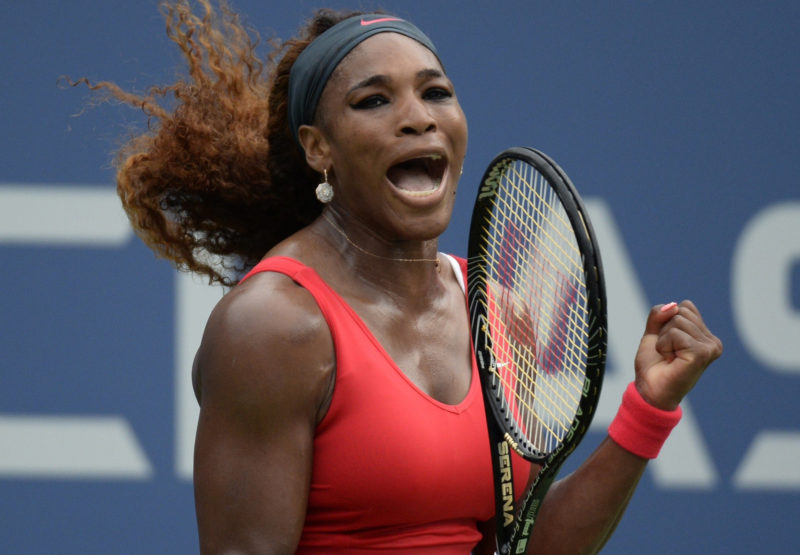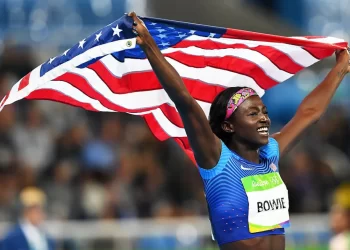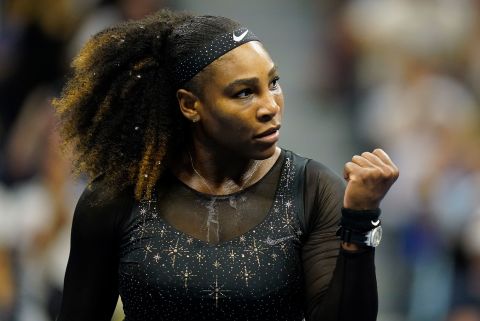By: Jeffrey Newholm
Competition. It’s held up as an ideal in our capitalistic economic structure. It’s what drives us to succeed and move farther in our lives and careers. And sadly it sometimes brings out the worst in us. But for those experienced with enough success and failure, it morphs a person into a mature champion. And that’s what Serena Williams has become, now atop the open era leader-boards with 22 major titles. But it wasn’t a straight line to the top. In fact there were some frightening failures. Some failures which threatened to derail both her career and her reputation. To become a champion, however, there isn’t any other way.
For the average player, winning a few games in a major tournament is a cause for revelry. But for elites like Serena, if you’re not first, you’re last. And the pressure to win a tournament-which became a foregone conclusion soon enough-can become unbearable. And in 2009 that pressure resulted in a crisis. In the US Open semifinals, Serena had a meltdown. She became belligerent and started screaming threats and obscenities. The consequences were severe. She lost the match, was fined a large sum of money and was put on probation. One more misstep could have ended her career. She was initially defiant and not long later ran afoul of the rules again. But time passes. Tempers cool. Serena eventually matured and dominated her game even more thoroughly. 2015 soon offered an opportunity to make women’s sports history.
Last year, Serena won major titles 19, 20, and 21. One more would bring the her a historic “grand slam” and tie Steffi Graf’s record in one fell swoop. But in the US Open semifinals, the unthinkable happened. Serena lost to unknown Roberta Vinci, devastating fans (and ticket scalpers) everywhere. Serena implausibly claimed that ” I never feel pressure and never felt that pressure to win here”. This position seemed hard to defend at the time, and became harder still to believe when she lost the next two major finals this year. Yet I noticed something admirable after these losses. Serena was a very gracious loser in all these defeats, warmly congratulating her underdog opponent. It seemed hard to believe that she went from making death threats to becoming a class act in just a few short years. And it portended well for her finally getting that historic twenty-second title. And Saturday that moment came.
On Wimbledon’s hallowed Centre Court, against an opponent, Angelique Kerber, she had already lost to earlier in the year, Serena eventually broke serve and won the first set. At a crucial point in the second set, she was faced with having her own serve broken. Serena answered with two wicked aces, and was soon facing game set. Kerber had no chance. Three volleys whizzed right past her bewildered, flailing attempts to return serve. The score was now 40-0. History was now not a question of if. It was a question of how. In the last point Kerber tried to hit a few shots back, but soon she saw the futility of her endeavor. Serena returned the ball one last time, Kerber let it go whizzing by, and the title was won. Serena had achieved her defining accomplishment. And soon the truth came out.
“It’s been incredibly difficult not to think about it” Serena finally admitted after the match. Which of course we all knew the whole time. Winning number 22 this way was so much more satisfying, as she made clear in her own words: “But it makes the victory even sweeter to know how hard I worked for it”. Winning every match would grow stale. But this-this was true joy. Serena is a model for any of us who have faced failure and disappointment. All fans ought to take heart at her words: “If anything, I was able to show resilience that, no, that’s not going to shake me, you’re not going to break me, it’s going to make me stronger”. This isn’t just applicable to tennis. Failure is not a period at the end of a sentence, it’s just the first word. How the rest is finished is up to us.
Now it’s up to the experts to pontificate on where Serena ranks in the pantheon of greatness. Greatest women’s tennis player ever? Greatest tennis player, period? Or in her own words, “one of the greatest athletes of all time”? Decide what you will, but I see no point in making comparisons. In my mind Serena Williams is in and of herself a strong spirit and an inspiration. And above all else: a champion.
You can follow me on twitter @JeffreyNewholm and our blog @NutsAndBoltsSP.


 NFL
NFL





